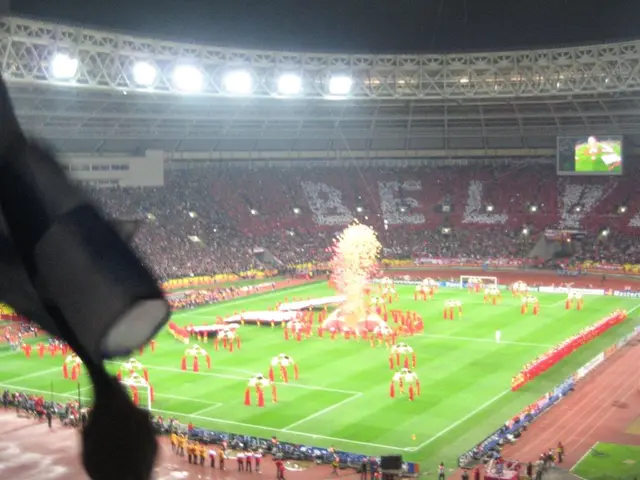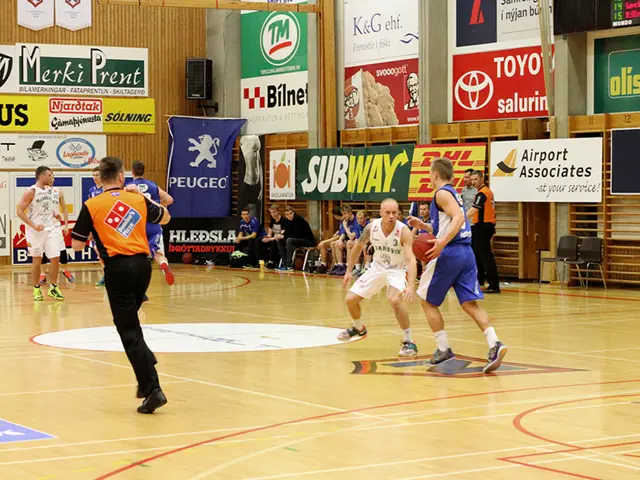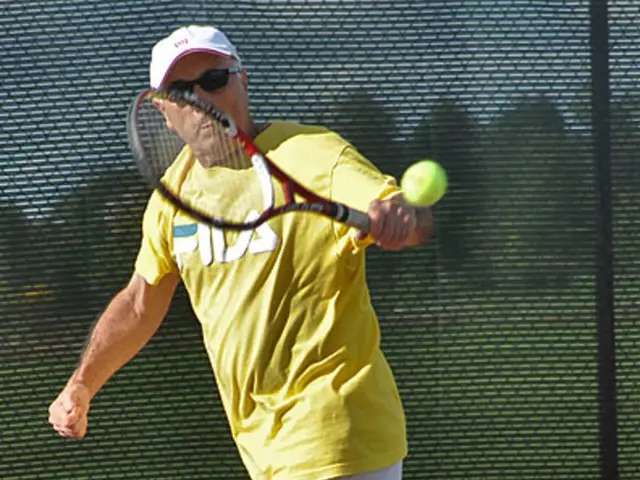Expansion of Sports Betting Firms Betano and Betfair in Football Sponsorships across Argentina and Brazil
The world of sports betting is undergoing significant changes in two major South American football markets: Argentina and Brazil. The regulatory frameworks and debates surrounding sports betting advertising in football are notably distinct in these countries.
Argentina
In Argentina, the regulation of gambling, including sports betting, is decentralised, with each province having its own rules and licensing requirements. This fragmented system has led to active discussions about a legislative bill that could potentially ban all gambling advertising across social media, public spaces, media outlets, and even stadiums. The aim is to curb the pervasive promotion of betting and gambling, particularly in popular sports like football.
Moreover, the use of athletes in gambling advertisements is already restricted in Argentina. They can only be involved when promoting responsible gambling messages rather than direct advertising of betting services.
Brazil
In contrast, Brazil has been progressively opening its sports betting market, attracting major operators. For instance, football club Flamengo named Betano as a lead sponsor, indicating active marketing campaigns within football. However, this openness has not been without challenges. Various firms operating in Brazil have been sued over their advertising claims related to betting, reflecting regulatory scrutiny over promotional practices.
Brazil's Finance Minister has publicly stated that online betting possibly should not have been allowed, hinting at an ambivalent or cautious governmental stance on the sector. Despite this, there is evident increased monitoring of advertising, especially regarding truthful claims and responsibility by the operators.
Broader Regional Context and Trends
Latin America is witnessing a trend towards stricter advertisement regulations for gambling, with Argentina at the forefront legislating near-complete bans on gambling advertising. Meanwhile, Brazil, with a growing regulated market, is facing lawsuits and political debates about how sports betting advertising should be controlled and responsibly managed.
Both countries show awareness of the need to prevent excessive or misleading gambling promotions, especially leveraging football's popularity.
Current Sponsorship Deals
In the now legal Brazilian sports betting market, Betano has announced its support for the Brazilian Serie A, following its previous sponsorships of the second-tier Serie B and the Supercopa Feminina, the Brazilian women's league. Similarly, Betfair has announced its financial support for the Serie A team Vasco da Gama, marking a shift from Pixbet's previous sponsorship of the team's jersey.
These sponsorship deals fit into a landscape of sponsors that is strongly dominated by gambling companies.
Notable Events and Future Developments
The Copa América and the European Football Championship will take place simultaneously this year. Betano will sponsor both events in Germany, reaching a billion viewers.
In Brazil, a measure has been initiated to introduce a real-time control system for sports betting to combat match-fixing and increase player protection. The timetable for the completion of gambling regulation in Brazil has also been set.
Meanwhile, the gambling conglomerate Kaizen Gaming, which owns the Betano brand, will sponsor the Argentine Football League, now called Torneo Betano. The new jersey of Vasco da Gama, featuring the logo of Betfair, was debuted last weekend.
Investments from sports betting providers could potentially make the offerings in Argentina and Brazil more popular. However, the issue of match-fixing in sports betting remains a significant concern in Brazil. Furthermore, the advertising deals with sports betting providers are a significant source of revenue for Argentine and Brazilian teams.
The British advertising authority has called for moderate gambling advertising at the 2024 EM, reflecting growing global concern about the impact of gambling advertising on society.
What about the impact of sports-betting advertisements on these major South American football markets, Argentina and Brazil? In Argentina, where gambling advertising could potentially be banned across various platforms due to active discussions about a legislative bill, athletes are already restricted from directly advertising betting services. On the other hand, Brazil, with an open sports-betting market, is facing legal challenges over advertising claims and has a growing real-time control system to combat match-fixing and increase player protection.








